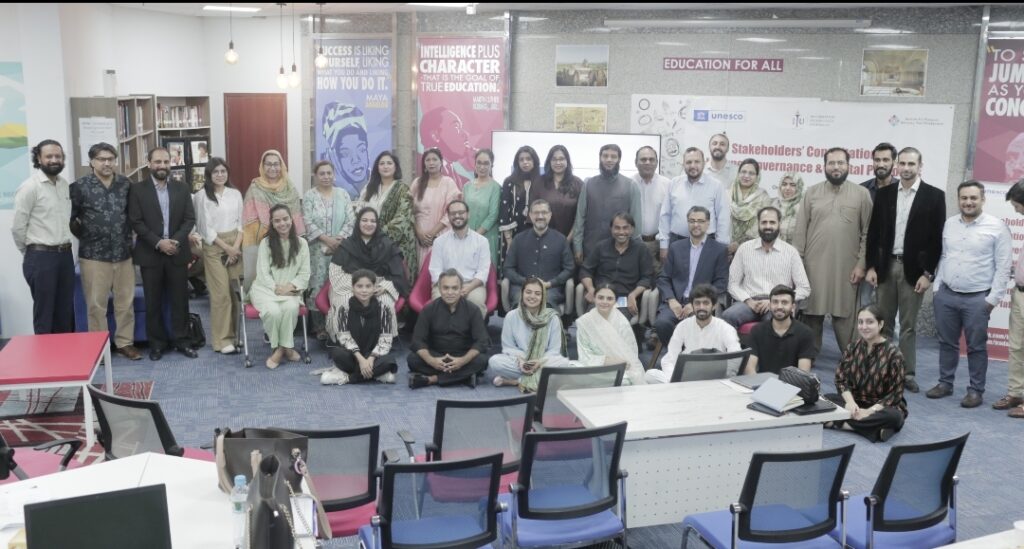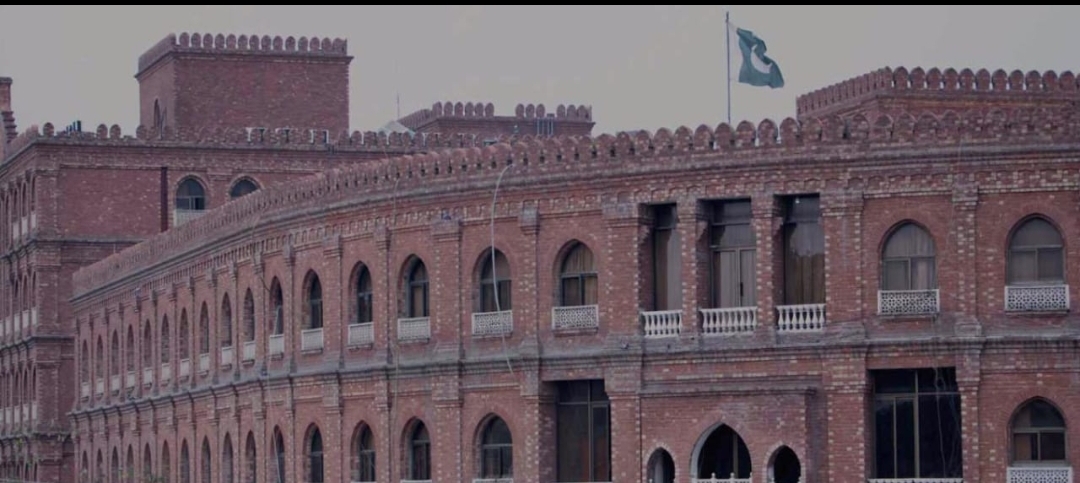
UNESCO, in collaboration with Information Technology University (ITU) Lahore and the Institute for Research Advocacy and Development (IRADA), hosted a multi-stakeholder consultation aimed at fostering constructive dialogue on digital governance in Pakistan.
The event marked the launch of a series of consultations to examine and promote the implementation of UNESCO’s Guidelines for the Governance of Digital Platforms. These guidelines are designed to create an environment that protects freedom of expression, guarantees access to information, and upholds human rights in the digital space.
By outlining specific roles for governments, digital platforms, and other key actors, they encourage a human rights-based, multi-stakeholder approach to governance. The framework proposes a combination of self-regulatory, co-regulatory, and statutory mechanisms, with an emphasis on media literacy, cultural diversity, content moderation, risk assessment, and accountability.
The event, held at ITU Lahore, featured notable speakers including Dr. Adnan Noor Mian, Vice Chancellor of ITU, who delivered the keynote address on the impact of emerging technologies on fundamental freedoms, Mr. Aftab Alam, Executive Director of IRADA, who welcomed the participants and provided insights into the collaborative efforts, and Hamza Khan, National Professional Officer, Communication and Information, UNESCO, who discussed UNESCO’s co-shaping role in the digital transformation.
This consultation is the first in a series of four to be held in each of Pakistan’s provincial capitals, culminating in a national consultation in Islamabad. The goal is to collect insights and recommendations from a wide range of stakeholders to develop governance frameworks that support internet freedom, human rights, and access to information across digital media platforms in Pakistan.
Participants at the consultation included representatives from academia, civil society, and digital journalists, who engaged in two panel discussions. The panels addressed strategies for holding social media platforms accountable in combating misinformation, disinformation, and hate speech. Following the discussions, participants were divided into groups to present recommendations for a national regulatory framework aligned with UNESCO’s guidelines. These recommendations included fostering greater cooperation among stakeholders, enhancing media literacy, and improving content moderation and curation practices on digital platforms.
These consultations serve as a critical step in advancing digital rights, promoting responsible governance, and ensuring that Pakistan’s digital platforms remain conducive to public discourse and the protection of fundamental freedoms.



